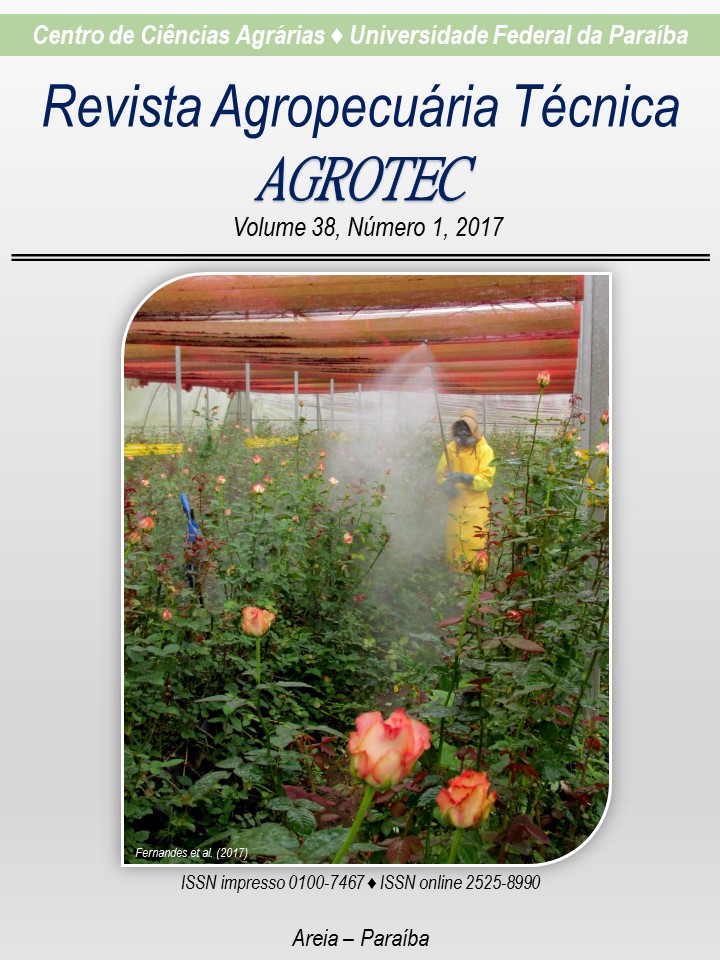Formação de mudas de maracujazeiro amarelo irrigadas com águas salinas e biofertilizantes de esterco bovino
DOI:
https://doi.org/10.25066/agrotec.v38i1.28090Palavras-chave:
Passiflora edulis, Salinidadeda água, Insumo orgânicoResumo
A aplicação de biofertilizantes de esterco fresco de gado bovino pode atenuar os efeitos negativos do excesso de sais na germinação das sementes e crescimento inicial das plantas. Nessa direção, foi desenvolvido um experimento em abrigo telado do Centro de Ciências Agrárias, Universidade Federal da Paraíba, município de Areia-PB, para avaliar os efeitos de biofertilizantes durante a formação de mudas de maracujazeiro amarelo irrigadas com água salina. Os tratamentos foram organizados em esquema fatorial 2 x 3 x 5, referente à salinidade da água de irrigação (0,43 e 4,5 dS m-1), no substrato sem e com biofertilizantes (comum e quimicamente enriquecido) nas concentrações de 0,0; 2,5; 5,0; 7,5 e 10,0%, diluído em água não salina. As épocas de aplicação dos biofertilizantes foram uma dia antes da semeadura e aos 15, 22, 29 e 36 dias após a emergência das plântulas (DAE), em um volume de 250 mL por aplicação. Foi adotado o delineamento de blocos casualizados com cinco repetições. Aos 60 DAE avaliaram-se o crescimento em diâmetro caulinar e altura da haste principal, número de folhas e área foliar, biomassa seca das raízes, caule e folhas. Os dados foram submetidos a análise de variância e as médias comparadas pelo teste de Tukey (p ≤ 0,05). Os biofertilizantes nas concentrações utilizadas não inibiram a ação degenerativa do aumento da salinidade da água no crescimento em diâmetro do caule, altura da haste principal e na formação de biomassa das raízes, caule e folhas das mudas de maracujazeiro amarelo.


